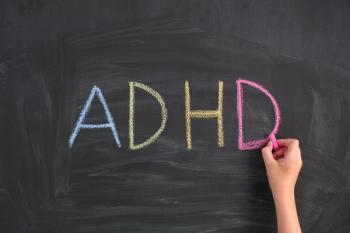
ADHD and the COVID-19 pandemic
What are the unique challenges for individuals with ADHD?
Although we have all been challenged by the COVID-19 pandemic, those with underlying mental health and neurodevelopmental diagnoses have faced particular hardship. Individuals with attention-deficit/hyperactivity disorder (ADHD) especially seem to have struggled to effectively adapt to the pandemic, showing more vulnerability to its many challenges.
Individuals with ADHD have showed a higher level of mental health concerns, difficulty adhering to preventive measures, and less economic success during the pandemic, as well as negative impacts on behavioral, emotional, and perceptual skills.1 Other challenges reported by adults with ADHD and caregivers of children with ADHD during the pandemic included social isolation, motivation difficulties, managing boredom, and difficulty engaging with online learning. Individuals with ADHD also reported increased symptom severity with higher risk factors for both major depression and school dropout.2 As the pandemic eases, these individuals are likely to require a high level of support, including therapy, psychiatry, and school and workplace accommodations to attain optimal functioning.
Accommodating Students With ADHD
The COVID-19 pandemic forced most students to engage in virtual learning. During that time, caregivers of children with ADHD reported significant changes in the children’s behaviors, suggesting a higher level of underlying emotional dysregulation.3 After returning to school, many children with ADHD have found it harder to adapt. They have required a higher level of support in reacclimating to a set schedule and have needed to rely on executive functioning skills that they may not have had support for during the period of virtual learning.4
Due to the combination of online learning, increased access to devices, and, for many, increased hours spent on digital media, it is not surprising to see struggles increase among children with ADHD. It has been suggested that ADHD symptoms, behavioral concerns, executive functioning difficulties, and family struggles all increased as digital media use increased during the pandemic.5 For many, the combination of these challenges and the challenges faced by exhausted parents has caused ongoing conflict even as the pandemic has begun to calm. Families continue to require mental health support for children and coaching for parents to manage these concerns.
Work Challenges for Adults With ADHD
The routine changes caused by the COVID-19 pandemic also presented a particular challenge for adults with ADHD. These individuals tend to require a higher level of structure than neurotypical peers and colleagues and are more likely to struggle when changes to routine occur. Creating a new schedule requires the ability to plan, organize, and initiate independently, which can be particularly challenging for those with ADHD, many of whom reported experiencing decreases in motivation and increases in distractions during the pandemic.
The constant access to media and electronics created a difficult distraction for many. The stimuli of “in-person” work was lost, and the ability to “body double”—that is, to work beside another person while completing a nonpreferred task to support engagement and accountability—was diminished. Individuals with ADHD are easily distracted and prone to missing social and environmental cues. The impact of both masking guidelines and frequent changes to these guidelines and other rules have likely increased these challenges and related stress, as well. It is important to support individuals with ADHD as they continue to adapt to changing guidelines, including changes to masking requirements.
Diagnosis
Accurate diagnosis of ADHD has also become more challenging because of the COVID-19 pandemic. Now more than ever, it is imperative to explore neurodevelopmental history to determine early signs and traits of ADHD. Even neurotypical individuals have found themselves more distracted and distressed during the COVID-19 pandemic, including those who have not struggled with attention, executive functioning, or related emotional or behavioral dysregulation in the past. As a result, more people sought care for potential ADHD as evidenced by increased inquires to CHADD.4 In some cases, caregivers began noticing their children’s attentional concerns for the first time while virtual learning was in effect. In other cases, caregivers found their child’s ADHD easier to manage without the restrictions of the pandemic. With increasing calls for diagnosis, practitioners have had to take great care to avoid misdiagnosis. It has been imperative to recognize that children may display ADHD symptoms when preferred distractions are nearby, when anxiety is high, when social opportunities are limited, when children are sitting on a screen and exercising infrequently, and when children are internalizing their caregivers’ anxiety.
Concluding Thoughts
A final concern related to ADHD during the COVID-19 pandemic has been the response to infection itself. Research shows that individuals with ADHD are at increased risk of acquiring COVID-19, experiencing greater severity of COVID-19 symptoms, and being hospitalized for COVID-19. The same study noted the need for more research on whether individuals with ADHD are at higher risk for long COVID or for neuropsychiatric symptoms resulting from COVID infection.6 Long COVID is an emerging challenge that is in need of additional study. For some, long COVID symptoms include cognitive impairment and memory loss, as well as disturbed sleep and increased anxiety.7 These symptoms mirror those of ADHD and will require accurate diagnosis and treatment.
Dr Halpern is a licensed psychologist with Washington Behavioral Medicine Associates, LLC, and director/co-founder of The SOAR Program for Psychotherapy and Testing at WBMA. Dr Laje is a psychiatrist and the director of Washington Behavioral Medicine Associates, LLC, and the co-founder of The SOAR Program.
Originally published on our sister brand,
References:
1. Pollak Y, Shoham R, Dayan H, et al.
2. Sibley MH, Ortiz M, Gaias LM, et al.
3. Zhang J, Shuai L, Yu H, et al.
4. Abrams Z.
5. Shuai L, He S, Zheng H, et al.
6. Merzon E, Weiss MD, Cortese S, et al.
7. Raveendran AV, Jayadevan R, Sashidharan S.
Newsletter
Access practical, evidence-based guidance to support better care for our youngest patients. Join our email list for the latest clinical updates.






